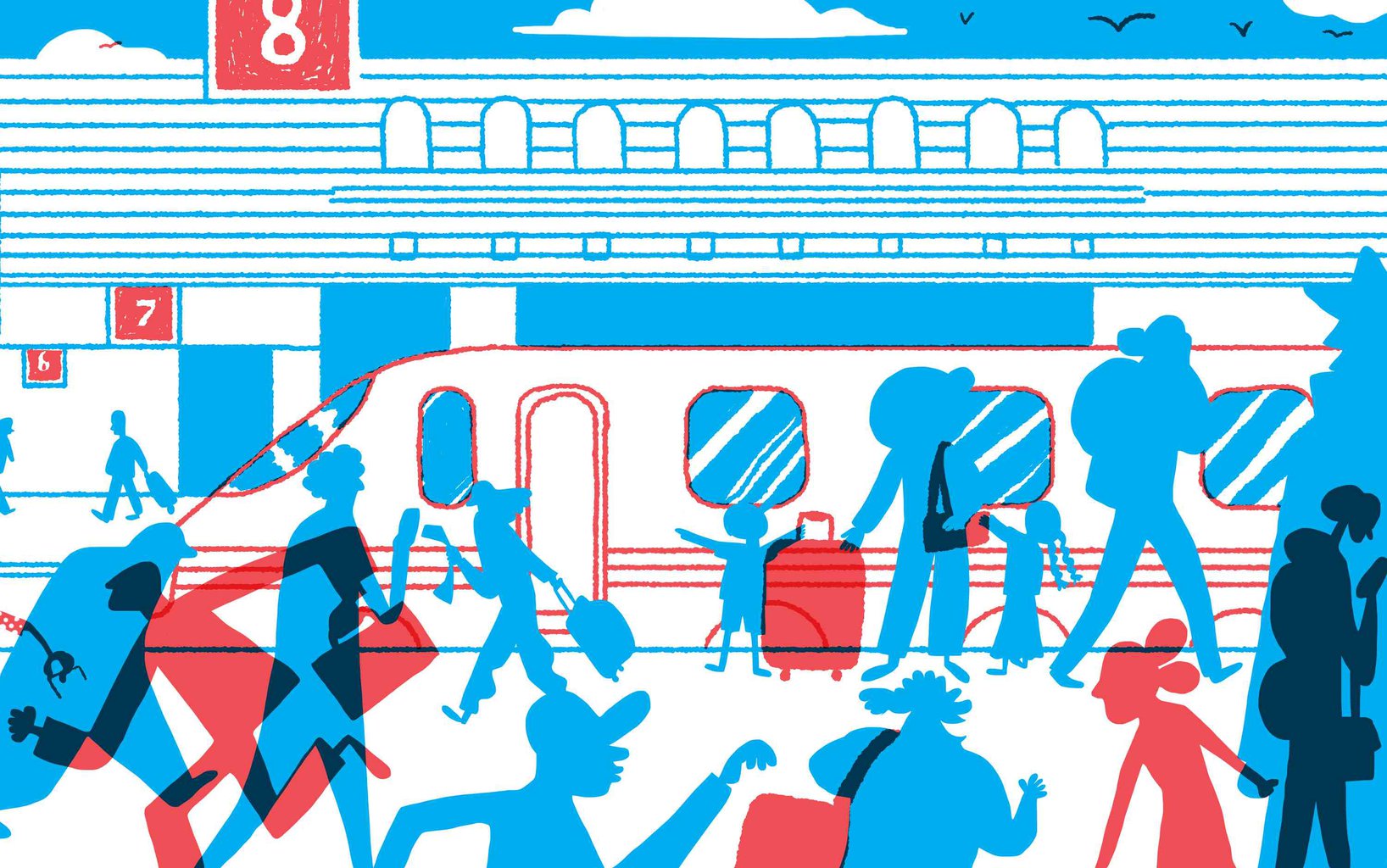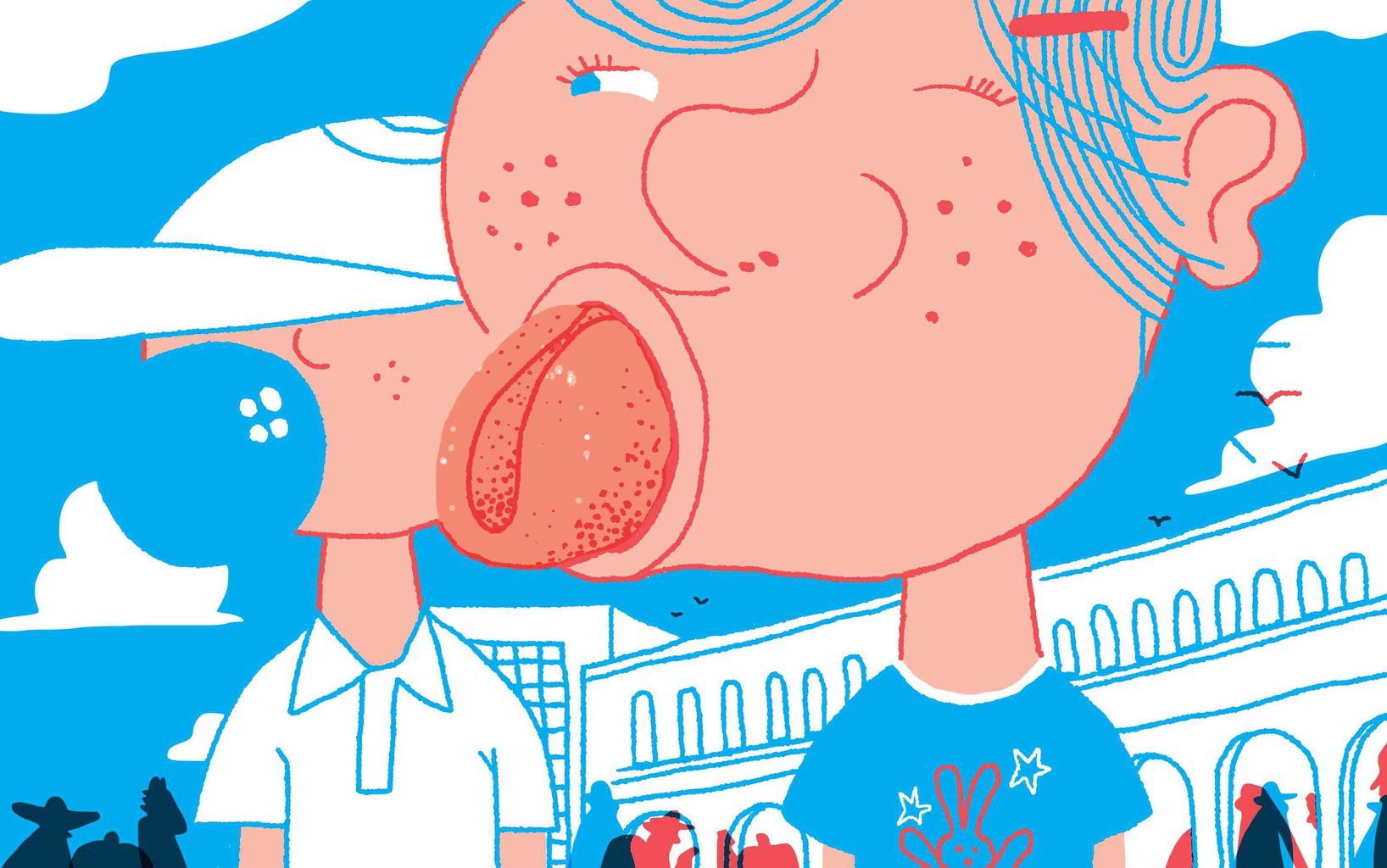Over 100,000 passengers pass through Rome’s Termini station every day. Its 33 platforms host high-speed trains that span Europe and dock at the Italian capital arund the clock, 365 days of the year.
Meanwhile shoppers arrive in the underground to pick up knitwear from Benetton, lingerie from Calzedonia or patchwork dresses from Desigual. This makes the terminus the second busiest station on the continent after Gare du Nord in Paris.
Up to 60 per cent of the passengers are foreign. Some are mini-breakers, others pilgrims, some catch a bus to the cruise ships on the Med, or race for a coach to Fiumicino airport. They are in a hurry. Nervous.
They don’t speak Italian. Don’t know where to go. How to get there. Who to ask.
These are targets.
The station has its own police force. To meet with their boss, one has to walk nearly a kilometre down the eastern platform to a large room with cordoned offices. The station is packed with shelves of files that litter the tight corridors.
The slim, forty-something head of the police, Emanuele Fattori, calls Termini “the central point of Italy” and refuses to say how many officers work at the station (it is classified).
Although terrorist attacks are the major threat to this transport hub, the station experiences a common nuisance of gangs looking to squeeze cash out of the masses teaming through the arcades and ticket barriers.
And for two years until 2014, the station was tormented by 20 Romanian beggars, aged between 12 and 17.
Top Target: The Japanese
At first, the kids were helping passengers with their luggage. Always the Asians, and especially the Japanese. This was not out of charity. After they hauled a suitcase 100 metres across a concourse, or down a flight of stairs, the kids expected a tip of between 20 and 50 Euro.
“If they weren’t paid, around three or four of them would crowd around the tourists and refuse to return the baggage until they were given money,” says Fattori.
While transporting the luggage, they were stealing phones or wallets from the passenger’s handbag. The police caught on, picked up the kids and questioned them.
The gang lived with 300 other Romanians in a squat inside abandoned buildings in the town of Aprilia, 50 km from Rome. The residents were mostly from the Danube town of Calafat, where they had traditionally been wood-carvers.
“There is a very big problem in Italy of children who come from Roma families used for begging,” says Vincenzo Nicoli, Second Department of the Central Operative Service in the Italian Police.
“In the north of Italy initiatives were made against this. The problem it is that as soon as you start a police initiative, they change their behavior. For example if I [as a criminal] am out with a child during school hours and the child is eight years old, I risk criminal arrest. But if I beg with a four-year old child [which is not the compulsory school age], I don't run any risk.
"There needs to be a combined social, cultural and police activity [to remedy this] - if it is only with the police, this will have a limited effect.”
In the Termini station, the kids were on their own. They had no adult overseers. Most were under 14, some as young as ten. Until the age of 14, a child cannot be kept in juvenile detention in Italy. They are the responsibility of their parents. The state can also put them in a children’s home. But if a kid wants to leave a children’s home - all he or she has to do is open the door of the building and walk out.
Although they were picked up, they could not be detained.
So they came back to Termini.
But they wised up.
This time, they stopped helping Japanese people with their baggage while stealing their iPhones.
They shifted to a new activity.
“Child abuse in McDonald's toilet”
The police noticed how the children were walking up to men, asking for their telephone numbers and pressing these into their own cellphones. These were older men - in their 50s and 60s, even 70s or more.
“That was quite weird,” says Fattori.
The police intercepted the telephones and found that around 14 boys and six girls were arranging to meet old Italian men for sex.
The kids, some as young as 14, gathered opposite McDonald’s at the west entrance to the main station and near the stairs to the Metro. Here they would stand, scan the passengers as they walked past, try to catch the eye of a man, then fold their tongue, and stick it out of a closed mouth. This was the sign for offering gay sex.
Where regional trains stopped in the station for over an hour, the boys would meet the clients in the carriage toilets.
They would also have assignations in the lavatory of McDonald’s. If the client was carrying a bit more cash, they went to a nearby hotel, where the owners would not record the names of the guests.
Because some of these kids were under 16, this was child abuse. The price the clients paid to abuse these kids was between 10 and 50 Euro for boys and 20 and 50 Euro for girls.
According to the results of the investigation, there was no pimp or an organized trafficking network. The boys would share the phone numbers of clients between themselves. They were not violent - and did not steal from the clients. Even though, in many cases, the clients were rich and important. They included a doctor, a surgeon, a former judge and two priests.
“Viagra and boys twice a day”
An eighty-year old man used to come to the station in the morning. He lived in a retirement home in the north of Rome. He would eat his breakfast at the home, pop a Viagra and come to the station. As the drug fired blood to the pensioner’s libido, he would find a Romanian boy at the west exit and arrange a rendezvous around the corner - at a hotel on Piazza Vittorio Emanuele.
Then he would catch a train back to the retirement home. At the fixed time of 12:00 he had to be there - as this was when the kitchen served up lunch.
After his meal, he would pop another Viagra, return to the station, arrange another meeting with a boy, and rendezvous with the kid at the same hotel on the Piazza Vittorio Emanuele.
After the police cracked down on the operation, he died of a heart attack.
The police caught one underage girl in a park near the station with an older Italian man. He was touching her “sexually”, says Fattori.
When the police accosted the two, the girl said that nothing illegal was going on. She claimed she had “a terrible ache in my stomach and this man was just massaging me”.
“Of course the kids knew what they were doing,” says Fattori.
So the cops rounded up the kids and seized their phones. Prosecutors used the information to indict 20 men. The judge took the evidence from the children and released them back to their families. The kids were worried they may face threats from the clients. The case is still ongoing. But the kids will not need to testify again.
Afterwards, many moved away from Italy. Some went to England, and others to Spain. The police do not know what happened to them.
“Perhaps they go out of station and meet [clients] in another part of Rome,” says Fattori, “but they don’t have sexual rapports in the station anymore.”
Fattori says the families knew their children were in prostitution. Some mothers were even encouraging the children to have sex with older men.
But the kids would not admit to this.
None of them.
Fattori says they told him: “My Mama did not know.”
Cecilia Ferrara works for the Investigative Reporting Project Italy (IRPI)
For more on how Romanians settled in Italy, read our interviews with residents of favelas at the edge of Naples
Part of The Black Sea #Eurocrimes project financed by Journalism Fund

